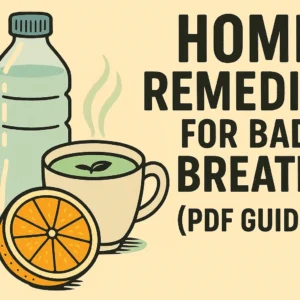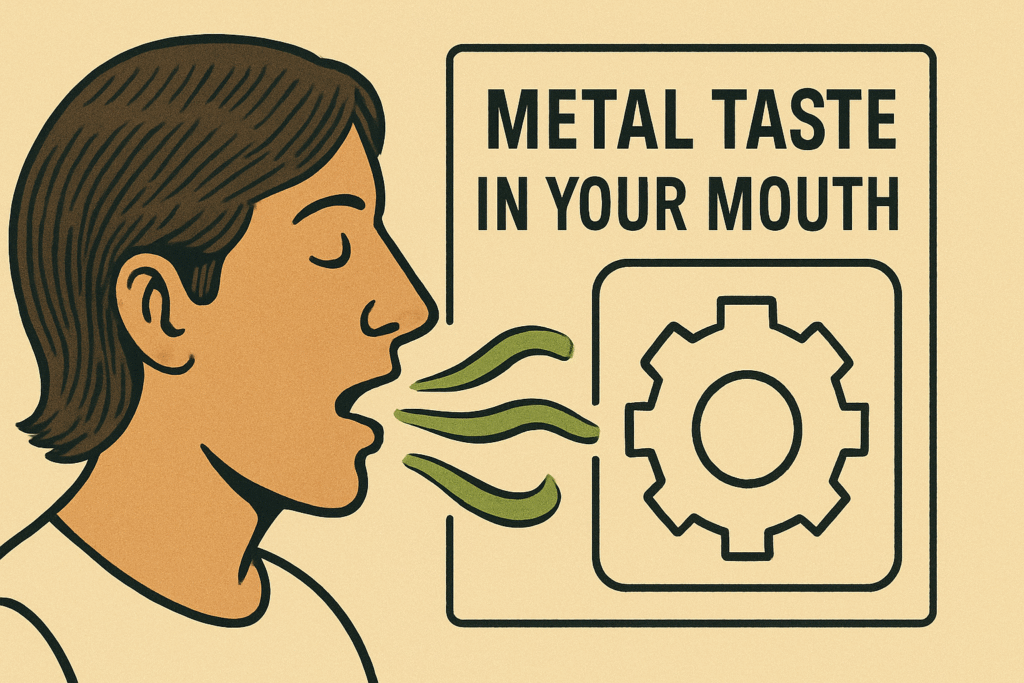Do you have a strange and persistent metallic taste in your mouth. One that seems to come out of nowhere and won’t go away? This taste disturbance, known as dysgeusia, can be more than just a passing annoyance. Most of the times it is linked to another unpleasant symptom: bad breath.
Though they seem unrelated at first, dysgeusia and halitosis (bad breath) can often go hand in hand. And both might signal something deeper going on in your body.
What Is Dysgeusia?
Dysgeusia refers to a distortion in your sense of taste. For many people, this shows up as a metallic, bitter or sour flavor that lingers. Sometimes even when you’re not eating anything at all. It can make food taste off and even affect your appetite.
How Are Dysgeusia and Bad Breath Connected?
The mouth is a complex environment where taste, smell and overall hygiene are closely linked. When there’s a disturbance, whether from: bacteria, dry mouth, medication or internal disease. It can affect how things taste.
This unusual metal taste often coincides with urine smelling breath odors, creating a double concern that shouldn’t be ignored.
What are the causes ?
- Kidney dysfunction: Waste buildup (such as urea) can lead to uremic fetor, causing a metallic taste and breath that smells like urine or ammonia.
- Oral infections or poor hygiene: Gum disease, dental issues and bacteria on the tongue can alter taste and cause bad breath.
- Medications: Many medications dry out the mouth or leave a lingering taste, both of which can affect breath.
- Sinus or respiratory infections: Mucus buildup and bacterial activity in the sinuses or throat can distort taste and create bad breath.
- Smoking and alcohol use: Both contribute to dry mouth and chemical residue in the mouth, affecting both taste and odor.
What Can You Do About It?
If you’re dealing with both a metallic taste and bad breath, don’t just mask the symptoms, look for the root cause.
Here are a few practical steps to start with:
- Brush and floss daily, and don’t forget to clean your tongue
- Use a non-alcoholic mouthwash to reduce bacterial buildup
- Stay well-hydrated, especially if you experience dry mouth
- Avoid strong-smelling or acidic foods that can intensify taste/smell issues
- Talk to a healthcare provider about any recent medications, changes in health, or persistent symptoms.
Conclusion
A metallic taste and bad breath might not seem serious at first glance, but they can be clues pointing to something deeper.
If the metallic taste persists for more than a few days, it’s important to consult a doctor. These could be signs of an underlying condition that needs professional attention.
By paying attention to these changes and addressing both oral hygiene and overall health, you can get to the root of the problem and breathe a little easier.


